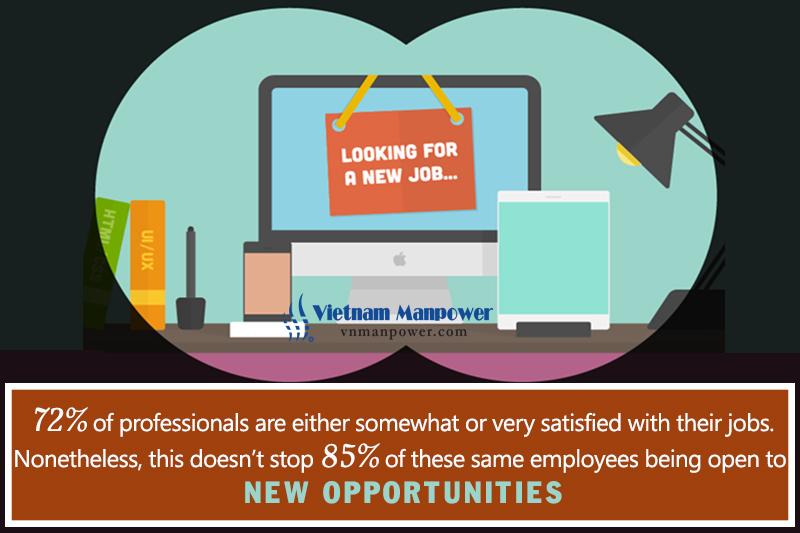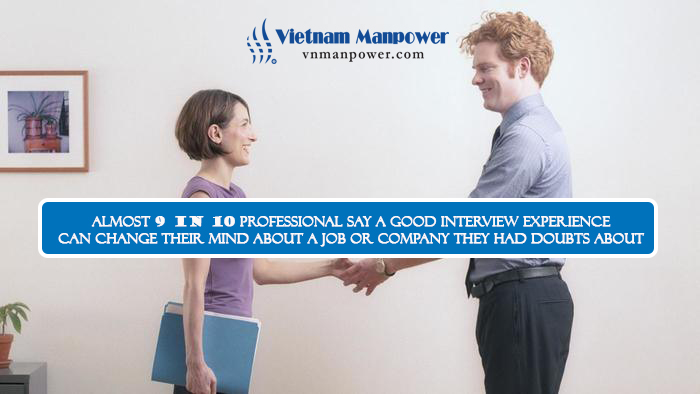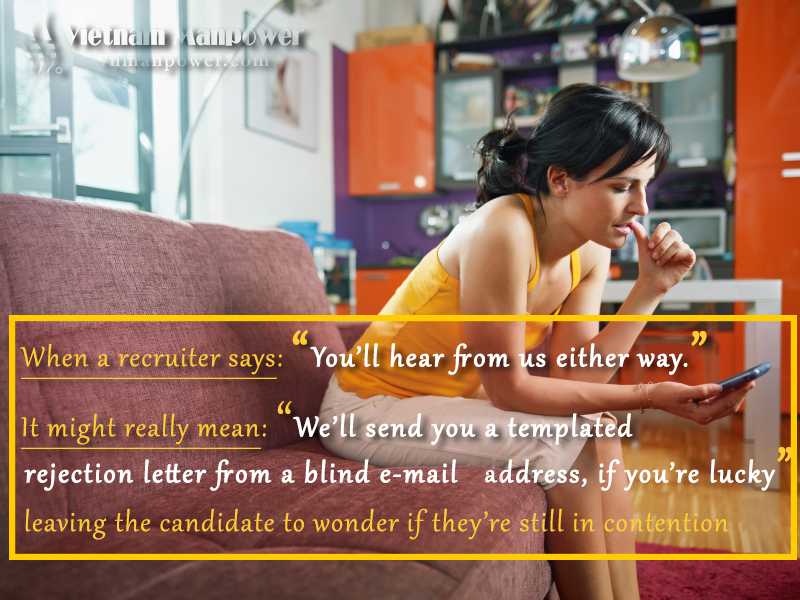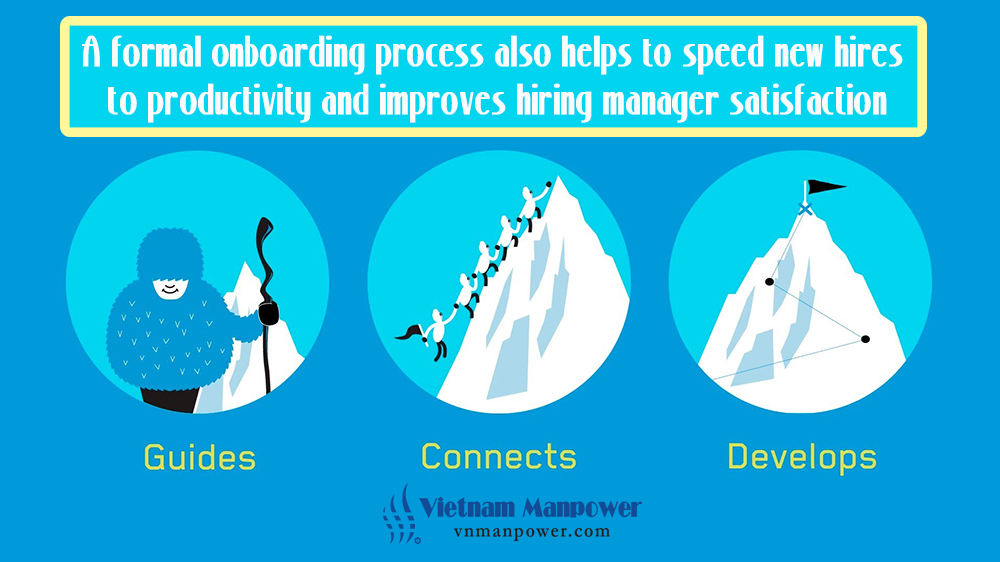There remains a paradox in the labor market: employers struggle to fill job openings while candidates are available everywhere. 89% of Glassdoor users are either actively looking for jobs or would consider better opportunities. (Glassdoor U.S. Site Survey, January 2016). Have you ever wondered why? Lots of employers and recruiters blame it for so-called talent shortage as they do think that it's objective problem. However, you may change your mind after knowing that the real problem belongs to your recruitment process in most cases. Let's have a look at 7 most common mistakes driving talented candidates away:
1. Boring job ads

Let's start with the very first ingredient of any recruitment campaign: job ads. It seems a piece of cake for recruiters to write a typical job ad but attracting top candidates with a winning job ad is totally a different story. It is a shame that no applicant reaches you after millions of job postings everywhere. According to a study by The Ladders, a candidate spends 49.7 seconds before dismissing a position as a poor fit, and 76.7 seconds with job ads that appeared to match their interests and skills. You must have read hundreds of job advertisements on job portals, social media and even local newspapers; but how many of them differentiate from others? Unspecific job title, endless list of requirements instead of why they should join your company, intransparent role, blurred company image, lack of contact information, unclear salary range are some of the most easy-to-make mistakes. To get great candidates, you have to win their attention first. Get to know your target audience and offer them what they need, not what you have!
2. Robotic screening

If you do mass recruitment, there's no denying that big data plays a crucial role in screening candidates. Applicant tracking systems are widely used in enterprises of different scales all over the world. However, don't turn yourself a slave of automation as you might omit some great candidates somehow. The best fit for a job is not necessarily a person with a stunning resume. There are some types of great team players that seem unqualified enough but really valuable to the whole team. Keywords help for sure, but kill sometimes. No matter how smart algorithms are, nothing can beat human roles in selecting suitable candidates.
3. Endless pre-employment tests

Pre-employment tests such as IQ, EQ, professional knowledge, foreign language skills are widely used to shortlist candidates, especially in bulk hiring. Testing is an effective way to sort out applicants with suitable expertise. But you are going the wrong way if your pre-assessment is too complex. Candidates don't apply to your job to waste their time on endless testing process. Shamely, some companies require all candidates who applied for different positions the same tests. Do you think copywriters need to be good at math or mechanical engineers must have high EQ? Talented candidates are hard to find, and harder to attract and much harder to persuade them to join your firm. It's time to review your pre-assessment process and keep an eye on candidate experience, better late than never!
4. Unprofessional interview

It is tough to invite a qualified candidate to an interview, so don't make it a completely futile trying. Of course, interviewees should always be on time to make a good impression. But it doesn't mean that interviewers can be late due to work stuff. Remember that candidates also evaluate employer throughout the hiring process. In each interview, the interviewers represent the employer brand. HR professionals know how to ask questions, but don't put the burden on their shoulders alone. The hiring manager needs to work closely with HR staff at each step of the recruitment process in general and interview in particular. Besides, it's time to stop asking unappropriated interview questions! You can't afford the risk of losing a potential candidate by asking them awkward questions that are even not related to the job.
5. Unfriendly communication

Employer-employee is a kind of give-and-take relationship, so be sure that you treat your candidates well enough from the beginning. Applicants invest time and effort in application letters to your posted opening and then all they receive is an auto-response confirmation message after weeks. How fair it is! Your candidates deserve to know where they are in your hiring process, and what to do next if they are moving on. If you try to walk in candidates' shoes, you will know what candidates want. Sometimes, a little change from passive to active voice brings many differences. Research outcomes reveal that candidates will give up on your firm when don't hear from you within 2 weeks. People who didn't suitable for the current jobs may become either best fits in the future or potential customers and partners.
6. Unattractive compensation

If you want to attract good fits to your openings, why don't you put salary range right on your job ads? While a lot of employers keep the compensation confidential until the last second, they want to reveal candidate salary history. How reasonable the request is! A successful hire is the result of a win-win negotiation. There is a well-known proverb in recruiting industry: If you pay peanuts, you get monkeys. Some employers try to make low job offers to qualified candidates with the hope that they will ask for a little raise. But this strategy is very risky, as it can repel good candidates, immediately.
7. Lack of onboarding process

Congrats, candidates have agreed to join your company after a long recruitment process. Yet it's too early to breathe a sigh of relief as their journeys at your company have just begun. Onboarding is crucial to the employer-employee relationship. Employers need to provide new hires enough support to help them integrate into the new environment and work. If you fail in making newcomers feel welcomed and engaged, they will leave you quickly. Ideally, onboarding process should start right after your candidate accepts the job offer.
What are some hiring practices that you think drive great candidates away? We would love to hear from you!












Replies to This Discussion